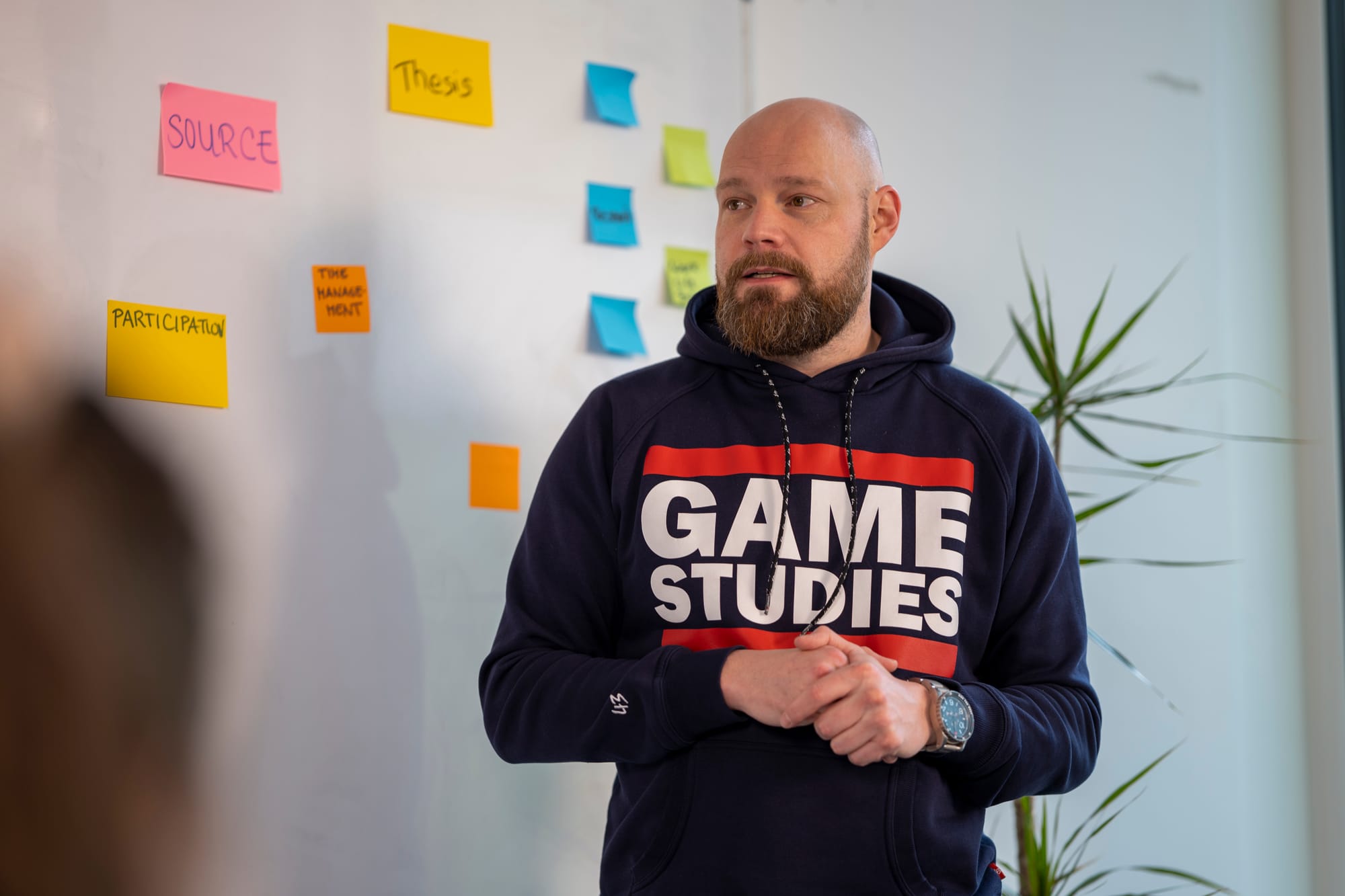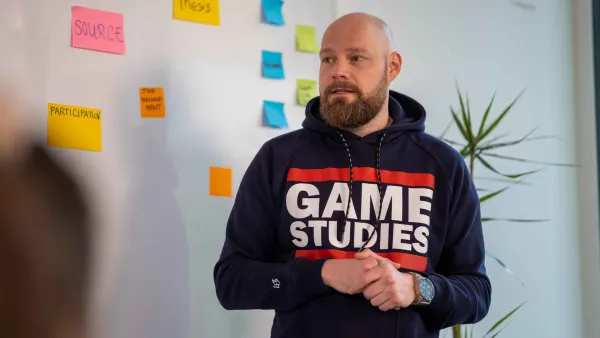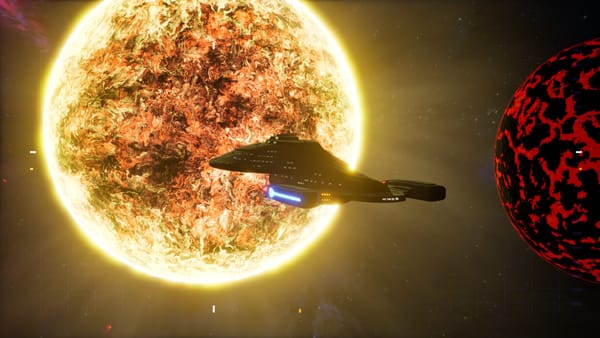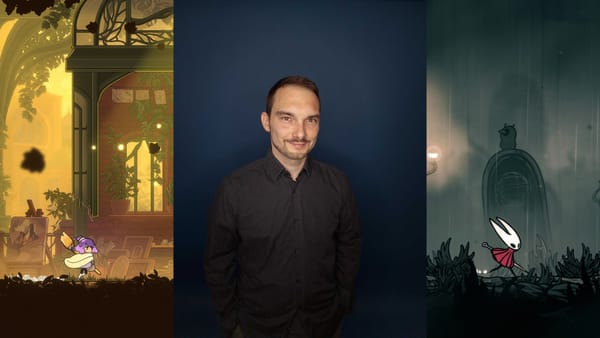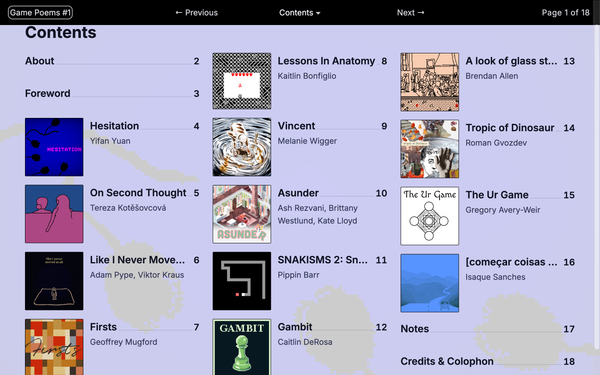AHOI there, game studies operators!
"Rain hammered the city like bad code on repeat. In a dim office above the noise, a game studies professor nursed cold coffee and warmer doubts, tapping out a newsletter no one asked for but someone might need — a dispatch from the dark corners where play meets meaning."
(Source: "Write a moody, literary opening paragraph that blends the atmosphere of a rainy city with the inner world of a game studies professor. Include metaphors that compare coding or games to life, emphasize quiet moments of reflection, and hint at a sense of purpose in creating something that may not be widely read but has value. Make it vivid, slightly noir, and thoughtful.")
ENOUGH! It's still my bloody fault for messing up the introductions to my own newsletter! After all, it's no lie that today is the first ‘real’ day of autumn, the kind that turns 14-year-olds into young poets in cemeteries. But don't worry: it's still too early for Halloween stuff! Today, we're turning our attention to "cyber this" and "cyber that". bizlychannel and bbnogames have things to show us ...
In their video essay, our protagonits revisit one of Cyberpunk 2077’s most quietly disturbing side quests: the story of Jefferson and Elizabeth Parales. Across two missions, the player uncovers that Jefferson, a mayoral candidate, is being manipulated by unseen forces who are rewriting his memories and personality. What begins as a noir-style murder investigation into the suspicious death of the previous mayor transforms into a psychological conspiracy: a surveillance network that literally edits minds. Even as players gather evidence of corruption and brainwashing, the game denies them closure; you can’t stop it, you can only decide whether to tell Jefferson the truth and destroy his sense of self, or to let him live peacefully inside a lie. Bizly’s commentary highlights what makes this quest exceptional: Cyberpunk 2077 refuses the fantasy of moral clarity or heroic agency. Every revelation implicates systems beyond the player’s reach, corporate powers, rogue AIs, and unseen elites, emphasizing that in Night City, truth and autonomy are luxuries no one can afford. The video also underlines how the game blurs investigative gameplay with ethical paralysis, showing how even acts of “doing good” risk becoming meaningless within total systemic control.
For game researchers, this storyline is fascinating since it dramatizes core cyberpunk themes, memory, identity, surveillance, and the illusion of choice, through interactive design rather than exposition. It invites analysis not just as narrative content but as ... #trommelwirbel ... procedural rhetoric: The quest structure itself enacts the futility of resistance within late-capitalist technocracy. In that sense, the Parales missions are a near-perfect case study for how mainstream games can use interactivity to pose philosophical questions about agency, truth, and the politics of information control.
As a huge fan of game researcher Sonia Fizek's work, I was very excited to see her posting in one of our Discord servers: "For those who are interested in games and environmental issues, production studies, game developer studies etc." State of the Art Report, 31st March, 2025 (Fizek, S., Eggel, D. R., Lindner, M., Paller, C., Limpach, O., Derivry, H., Grünberg, I., Taeger, M.) Green Transition at Play. State of the Art Report on the Environmental and Social Sustainability of Video and Board Game Industries. Project STRATEGIES - Sustainable Transition for Europe’s Game Industries (PDF download).
Game industry consultant Cat Burton sat down with Trevin York, founder of Dire Lake, in order to talk about how Games for Change are reshaping the way we could tackle global challenges. Burton explains: "From climate action and healthcare to finance and education, Trevin reveals how playful design can turn complex, serious topics into experiences that inspire real-world impact."
I'd also point to a new call for a Special Issue in the Journal of Interactive Narrative: "Autonomy In and Through Interactive Digital Storytelling", guest-edited by Bojana Romic and Frederic Dubois. Deadline for submitting of your drafts is 19 January 2026 (more info).
If you’re into games, research, and good conversations, come hang out with us on Bluesky! The Game Studies community there is growing fast, full of curious minds, thoughtful discussions, and the occasional meme. It’s (still) a friendly corner of the internet where academics, players, and designers meet just because… well, it’s cool.
Have you recently published something exciting in the field of game studies? I’d love to have you on my podcast Game Studies (proud member of the New Books Network) to talk about your new work! Whether it’s a book, or an edited volume — if it explores games and culture, let’s chat about it. It’s a great way to share your ideas with a wider audience and keep the conversation in our field vibrant and accessible.
Cheers and stay healthy,
Rudolf
